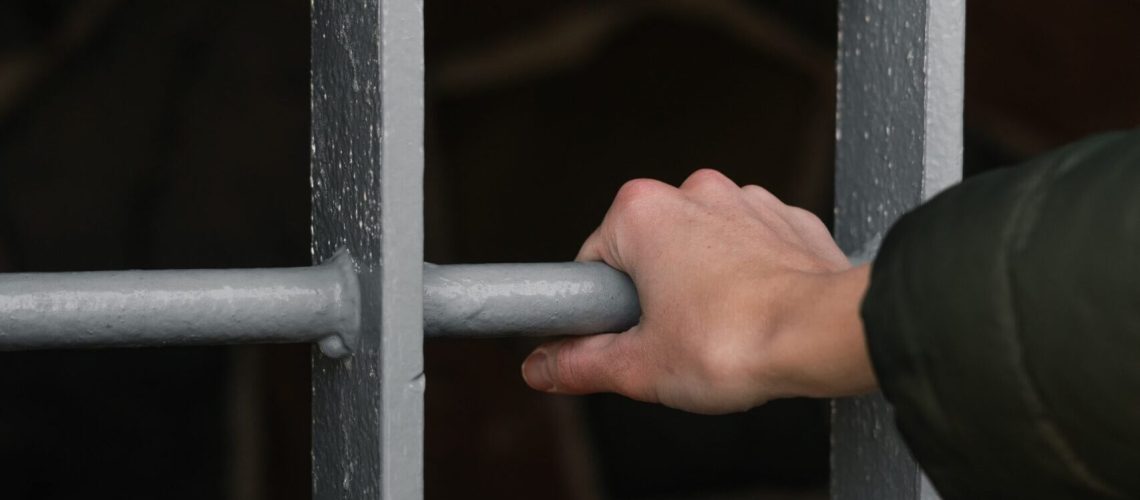The most obvious thing anyone wants to do when are they taken to jail is to get out of jail. So how does one get out of jail while their case is pending? The answer is to bail or bond out. The terms “bond” and “bail” are usually used interchangeably, but technically bail is money given to the court as security that assures the accused will show up for the court proceedings; alternatively, bond is when a bonding company makes a guarantee to pay the bail on the accused’s behalf if the accused does not show up for court (the bonding company charges a fee that ranges from 10-15% of the bond). The purpose of a bail or bond is to allow someone to remain out of jail while awaiting trial or resolution of the case.
WHO GRANTS BAIL
Bail for misdemeanors are a matter of right, and anyone charged with a misdemeanor should be given bail. In fact, most counties have a “bail schedule” which lists pre-authorized bail amounts for common crimes such as DUIs or driving without a license. Other offenses that are not on a bail schedule can be granted bail by a magistrate judge.
SUPERIOR COURT BAIL
Some serious felonies can only be granted bail by a superior court judge. The serious felony offenses include:
- Treason;
- Murder;
- Rape;
- Aggravated sodomy;
- Armed robbery;
- Home invasion in the first degree;
- Aircraft hijacking and hijacking a motor vehicle in the first degree;
- Aggravated child molestation;
- Aggravated sexual battery;
- Manufacturing, distributing, delivering, dispensing, administering, or selling any Schedule I or II controlled substance;
- Drug trafficking;
- Aggravated stalking;
- Kidnapping, arson, aggravated assault, or burglary in any degree if the person, at the time of the alleged kidnapping, arson, aggravated assault, or burglary in any degree, had previously been convicted of, was on probation or parole with respect to, or was on bail for kidnapping, arson, aggravated assault, burglary in any degree, or one or more of the offenses listed under (1) through (11); and
- Any violation of the Georgia Street Gang Terrorism and Prevention Act.
If a case has one of these offenses, a motion for bond must be filed in superior court. Once the motion is filed, the court will set a date for a bond hearing within 10 days – however, there is no immediate remedy for a detained person if this statutory 10-day requirement is violated.
FACTORS TO CONSIDER WHEN DECIDING BAIL
There are four factors that a judge will consider when deciding whether to grant bail. The factors are whether the accused poses a:
- significant risk of fleeing the jurisdiction of the court or failing to appear;
- significant threat or danger to the community;
- significant risk of committing a felony pending trial; and
- significant risk of intimidating witnesses or obstructing the administration of justice.
These are called the Ayala factors. If any one of these factors are met, then the judge will deny bail. The accused must show some evidence that he will not flee and that he has roots in the community. The accused can meet that burden of production by showing:
- length and character of residence in the community;
- employment status and history;
- history of responding to legal process; and
- lack of prior criminal record.
HOW IS THE AMOUNT OF BAIL DETERMINED IF GRANTED
If the judge decides to grant bail, the judge must give a reasonable bail. The judge can set the amount of bail by looking at the accused’s ability to pay, the seriousness of the offense, the accused’s character, and public safety. Contrary to the Ayala factors, the judge is not limited to these considerations when setting the amount of bail.
TYPES OF BONDS
There are four types of bail bonds that are used in Georgia to secure an accused’s release from jail: (1) own recognizance; (2) cash bond; (3) property bond; and (4) bonding company.
Own Recognizance: This is the easiest and most efficient way to secure bond. Instead of paying cash, a judge will take an accused’s word that he will show back up for court.
Cash Bond: If an accused is granted a cash bond, the accused simply pays the amount of the bail to the court as security. With cash bonds, an accused will get the money back at the end of the case so long as he does not miss a court date.
Property Bond: An accused could use his house as collateral as security that he will show up for court. This is very risky and a hassle because of the documentation that is needed and all of the taxes must be current. Sometimes it is not worth risking your house as security when there are other options for bail.
Bonding Company: This option is the most common. If an accused cannot afford to post the bail amount, he can use a bonding company. The bonding company will post the bond for the accused for a fee. The bondsman generally charges between 10% and 15% of the bond amount. For example, if the bond amount is $10,000, the fee for the accused will be somewhere between $1,000 and $1,500. The bonding company’s fee is non-refundable, and an accused will not receive the money back at the end of the case.
WHAT IF BAIL IS DENIED
If an accused is denied bail, the accused is entitled to have his case presented to the grand jury to determine if formal charges should be brought, or if the case should be dismissed. If the accused’s case is not brought before a grand jury within 90 days, the court shall grant the accused bail.
NEED LEGAL ADVICE?
If you or a loved one has been arrested, the seasoned team at Arora Law has the experience and skills to advise you on bail and all other serious legal matters. Contact us so we can help.










